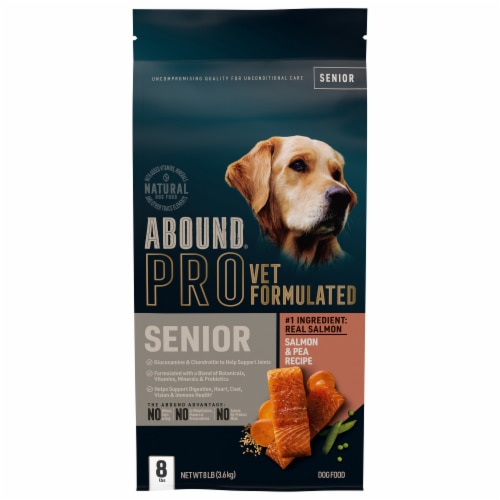Vet-Formulated Food for Aging Pets: A Comprehensive Guide
As our beloved pets gracefully age, their nutritional needs change significantly. Just as humans require specialized care in their golden years, senior pets benefit immensely from diets tailored to support their unique health challenges. Vet-formulated food for aging pets is a game-changer in this regard, offering a scientifically backed approach to ensure optimal well-being. This comprehensive guide delves into the intricacies of vet-formulated food, exploring its benefits, key ingredients, and how it can enhance the quality of life for your aging companion.
Understanding the Nutritional Needs of Senior Pets
Before diving into the specifics of vet-formulated food, it’s essential to understand how the nutritional requirements of pets evolve as they age. Several physiological changes occur that necessitate dietary adjustments:
- Decreased Metabolic Rate: Senior pets often experience a slowdown in their metabolism, leading to a reduced need for calories. Overfeeding can easily result in weight gain, exacerbating joint problems and other age-related issues.
- Reduced Muscle Mass: Aging pets tend to lose muscle mass, a condition known as sarcopenia. Adequate protein intake is crucial to help maintain muscle mass and strength.
- Digestive Changes: The digestive system becomes less efficient with age, making it harder to absorb nutrients. This can lead to digestive upset and nutrient deficiencies.
- Weakened Immune System: The immune system’s effectiveness declines, making senior pets more susceptible to infections and diseases.
- Increased Risk of Chronic Diseases: Aging pets are at a higher risk of developing conditions like arthritis, kidney disease, heart disease, and cognitive dysfunction.
The Benefits of Vet-Formulated Food
Vet-formulated food is specifically designed to address these age-related changes and provide the necessary nutrients to support senior pets’ health. Here are some key benefits:
-
Tailored Nutrient Profile: Vet-formulated diets are carefully crafted to provide the optimal balance of protein, fat, carbohydrates, vitamins, and minerals for senior pets. This ensures that they receive the right amount of each nutrient to support their specific needs.
-
High-Quality Ingredients: These diets typically use high-quality, easily digestible ingredients to maximize nutrient absorption and minimize digestive upset. They often contain novel protein sources or hydrolyzed proteins for pets with sensitivities.
-
Targeted Support for Age-Related Conditions: Vet-formulated food often includes specific ingredients to address common health issues in senior pets. For example, it may contain:
- Glucosamine and Chondroitin: To support joint health and reduce inflammation in pets with arthritis.
- Omega-3 Fatty Acids: To promote healthy skin and coat, reduce inflammation, and support cognitive function.
- Antioxidants: To protect cells from damage caused by free radicals and support immune function.
- L-Carnitine: To help maintain muscle mass and support heart health.
- Phosphorus Restriction: To support kidney health in pets with kidney disease.
- Fiber: To promote healthy digestion and prevent constipation.
-
Weight Management: Vet-formulated diets often have controlled calorie levels to help prevent weight gain and maintain a healthy body weight.
-
Enhanced Palatability: Senior pets may have decreased appetites, so vet-formulated food is often made with enhanced palatability to encourage them to eat.
-
Peace of Mind: Knowing that your pet is eating a diet specifically designed to meet their needs can provide peace of mind and help you feel confident that you are doing everything possible to support their health.
Key Ingredients to Look For
When choosing a vet-formulated food for your senior pet, pay attention to the ingredient list. Here are some key ingredients to look for:
- High-Quality Protein: Look for named protein sources like chicken, turkey, fish, or lamb. Avoid generic terms like "meat by-products."
- Easily Digestible Carbohydrates: Choose diets with easily digestible carbohydrates like rice, oats, or barley.
- Omega-3 Fatty Acids: Look for sources of omega-3 fatty acids like fish oil, flaxseed, or algae.
- Antioxidants: Look for ingredients like vitamin E, vitamin C, and beta-carotene.
- Glucosamine and Chondroitin: These supplements can help support joint health.
- Prebiotics and Probiotics: These ingredients can help support digestive health.
Transitioning to Vet-Formulated Food
When switching your senior pet to a vet-formulated diet, it’s essential to do so gradually to avoid digestive upset. Here’s a recommended transition schedule:
- Day 1-2: Mix 25% of the new food with 75% of the old food.
- Day 3-4: Mix 50% of the new food with 50% of the old food.
- Day 5-6: Mix 75% of the new food with 25% of the old food.
- Day 7: Feed 100% of the new food.
Monitor your pet’s stool consistency during the transition. If they develop diarrhea or vomiting, slow down the transition or consult your veterinarian.
Consulting with Your Veterinarian
Before making any changes to your senior pet’s diet, it’s crucial to consult with your veterinarian. They can assess your pet’s individual needs and recommend the best vet-formulated food for their specific health conditions. Your veterinarian can also help you determine the appropriate portion sizes and feeding schedule.
During your consultation, be sure to discuss any health concerns your pet may have, such as arthritis, kidney disease, or cognitive dysfunction. This will help your veterinarian recommend a diet that is specifically tailored to their needs.
Conclusion
Vet-formulated food for aging pets is a valuable tool for supporting their health and well-being. By providing a tailored nutrient profile, high-quality ingredients, and targeted support for age-related conditions, these diets can help senior pets live longer, healthier, and happier lives. Remember to consult with your veterinarian to determine the best vet-formulated food for your pet’s individual needs. With proper nutrition and care, you can help your aging companion enjoy their golden years to the fullest.

